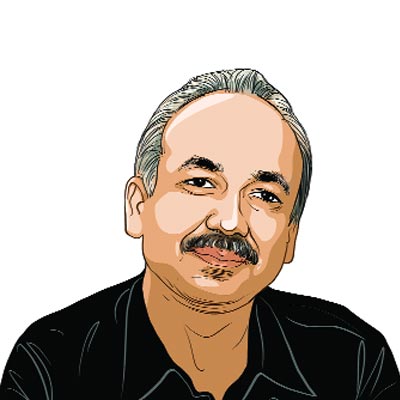Opinion A poorly managed transition
As Nepal slowly prepares for polls,thats the peoples verdict on the last six years
As Nepal slowly prepares for polls,thats the peoples verdict on the last six years
The foreign ministry vetoed a meeting ambassadors from the EU and Scandinavian countries,as well as the US,wanted with the president. Soon after the meeting was cleared by the foreign ministry,the chief of protocol approached the presidents secretariat with a verbal message that the prime minister and the deputy PM,both from the Maoist party,wanted the president to put it off.
The ambassadors had informed the foreign ministry they would be discussing the terms of reference for the proposed commission on human rights abuses during the decade-long conflict,with the power to recommend general amnesty for all,by which almost all top Maoist leaders would not have to face trial. The government knew that even a sympathetic hearing by the president would defame the PM and the Maoist party.
The end of the prolonged honeymoon between the international community and the Maoists comes when the four big parties are being blamed for the prevailing mess and are engaged in a bitter fight,with the Nepali Congress and the Communist Party of Nepal-Unified Marxist Leninist announcing they will agitate to seek PM Baburam Bhattarais ouster.
The deposed former king,Gyanendra,got rousing receptions during his visit to the mid-western districts indicating that a large number of people are fed up with the parties. That also means Nepal has a much wider presence of traditional forces,albeit scattered and disorganised,and that no solution can be found by keeping them out of the political process. Regressive forces are trying to strike back because the parties are not cooperating with me, Bhattarai said,annoyed by the crowd Gyanendra was drawing. But the Maoists,like the other big parties,are now neither respected nor feared. The international community has only now come to realise that diminishing public trust in Maoists and other parties was based on a real assessment of their commitment to peace,constitution and democracy.
While most people accused of representing the state during the years of conflict have either retired or been denied promotion,those in the Maoist party are in active politics and will be the beneficiaries of the proposed general amnesty. Bhattarai had ignored all objections and refused to arrest his party legislator Balkrishna Dhungel even after his conviction in a murder case. Maoists have suffered a split and an erosion in credibility. The other big parties simply followed them blindly all these years,and therefore are as discredited as the Maoists. Thats what makes them hesitant about polls. Yet,with hopes of reviving the failed Constituent Assembly gone,parties have no option but elections,perhaps in March or April.
Nepal goes through a process of yet another political polarisation. There may be a far less active role for the international community this time and their not being seen as backing the radical forces will go against the Maoists and other big parties. Nor is the army likely to be kept confined to the barracks as during the 2008 polls. Whether or not a future parliament will honour the work,and the limited agreement,of the previous House will depend on its composition. The big parties,including the Maoists,will be going to the polls separately,blaming each other for the current chaos. The last six years of euphoria,and hopes for change,simply turned out to be a poorly managed transition.
yubaraj.ghimire@expressindia.com





